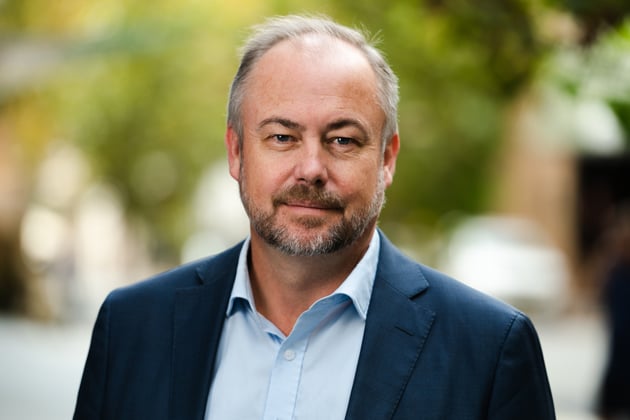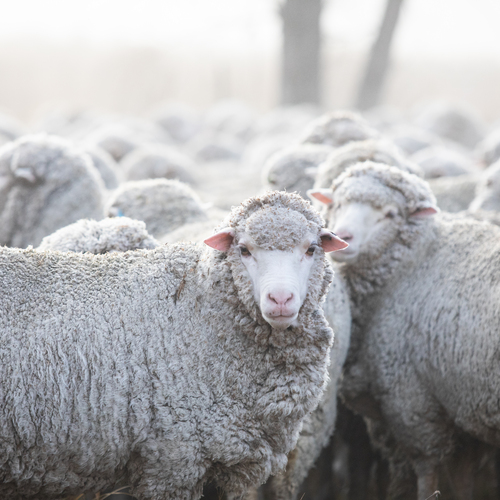AWI WORKING FOR WOOLGROWERS

AWI CEO John Roberts provides readers with an overview of how AWI is undertaking R&D and marketing to address some of the key issues faced by Australian woolgrowers.
AWI will next month embark on the last financial year that the company will operate under its current three-year Strategic Plan for 2022/23 to 2024/25. In this coming year, the level of expenditure by AWI on R&D and marketing will be reduced compared to previous years. This is a result of not only AWI’s continuing low revenue but also, importantly, the diminishing financial reserves of the company. Going forward, AWI is in a financial situation in which it must largely rely only on what it receives in revenue each year.
AWI already operates in a lean and efficient manner, so just like any business with a reduced income, the company has had to make tough choices about what projects to invest in. While AWI will continue to invest in those areas that woolgrowers have told us are most important to them, our limited financial resources will negatively impact the company’s ability to invest in projects to address all the challenges and opportunities faced by the Australian wool industry.
Looking ahead 12 months, AWI’s next three-year Strategic Plan, effective from 1 July 2025, will be framed by the result of the WoolPoll 2024 vote, which is being held later this year, as well as the broader financial challenges that the company faces.
This is one of the more critical moments in the company’s history and woolgrowers have some big decisions to make about their collective funding of wool industry R&D and marketing. I encourage woolgrowers to talk to the other stakeholders in their industry – their families, farm managers, wool brokers and staff, and especially the younger stakeholders whose future is most at stake – and get their views on what level of investment in R&D and marketing they want in the industry.
I believe that, just like an individual wool-growing business has to invest to increase efficiency, profits and growth, the industry collectively also has to invest in research and innovation to succeed. For instance, in order to attract and retain wool harvesting staff in the industry, AWI invests woolgrower funds in shearer and wool handler training and technology-based opportunities such as biological wool harvesting. Other key on-farm R&D areas in which AWI invests include projects to increase sheep health, welfare and reproductive efficiency, and projects to ensure environmental sustainability in the face of an increasingly variable climate. AWI also delivers practical training programs through its extension networks to increase growers’ adoption of best practice on-farm management.
In a commodity-based industry such as ours, I believe it is especially vital that there is collective investment in the marketing of Australian wool. AWI and its subsidiary The Woolmark Company work on behalf of woolgrowers in key markets across the world to support the use of Australian wool by processors, manufacturers and brands. As well as promoting the fibre’s premium qualities, the company is increasingly focussed on showcasing the eco-credentials of the fibre to take advantage of the mega-trend towards sustainability, while also defending the fibre against adverse regulatory proposals such as in the European Union’s Product Environmental Footprint (PEF) project. The company also explores new and diverse product and processing opportunities for wool.
The WoolPoll 2024 vote will take place from 20 September until 1 November. In early September, every woolgrower who has paid $100 or more in wool levy over the past three years will receive voting papers and a Voter Information Memorandum containing details about how AWI proposes to invest levy funds at each of several levy rate options. The voting process will be very quick and easy.
It’s important to note that voting at WoolPoll to continue the wool levy at the current 1.5% level doesn’t mean there will be the same amount of dollar investment in R&D and marketing by AWI as there has been during the past five years. This is because AWI no longer has the amount of financial reserves to call on that it once did. In terms of dollars invested by AWI, a 1.5% vote would therefore not be a vote for the status quo.
Given the considerable opportunities and threats now facing the industry, I encourage all woolgrowers – whether you’re a specialist Merino woolgrower or a mixed farmer – over the next few months to carefully consider what level of investment you want the industry to make and then vote at WoolPoll 2024 when the time comes later this year. Remember, WoolPoll happens every three years, so the next vote following this year’s WoolPoll will not be until 2027. WoolPoll 2024 is a critical time to have your say.
I acknowledge that woolgrowers are experiencing a range of particular challenges at the moment, including subdued global economic conditions and geopolitical instability that is adversely affecting wool prices and production costs, and unseasonally dry weather in some regions is impacting feed availability and stocking levels. However, despite these and other challenges, I am aware of many woolgrowers who still have a healthy optimism about the future of the wool industry and are investing in their businesses. I too share that optimism and look forward to AWI providing a valuable contribution to that future.













